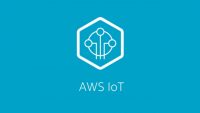Iridium and AWS Partner to Offer Global Satellite Connection
October 4, 2018
Satellite company Iridium Communications and Amazon Web Services inked a partnership to develop CloudConnect, a global network to enable Internet of Things (IoT) applications. According to Iridium chief executive Matt Desch, terrestrial networks only cover 10 to 20 percent of the earth, whereas the cloud platform, via satellite, can cover everything. The goal initially is to focus on areas without cellular technology. CloudConnect is slated to launch in 2019 as the first and only satellite provider connected to AWS.
CNBC reports that, “Amazon has been looking to hire people to work on ‘interconnecting space system networks’.” SpaceX is launching Iridium’s $3 billion satellite network, which is composed of its NEXT constellation of 75 satellites. The eighth, and final, launch will take place later this year; Desch has called SpaceX, its sole launch provider, “critical” to its success. NEXT satellites, once online, will be able to “offer services such as higher broadband communications speeds and global airplane tracking.”

Desch pegged IoT applications as a “catalyst for strong subscriber growth.” He added that the network currently hosts “about half a million” devices, with growth of about 20 percent per year for the last three years. By adding AWS, said Desch, “easily this could expand to tens of millions of devices.” “We have the best bandwidth over anybody,” he said. “Our network is super efficient at how it can manage these bytes of information.”
He pointed out that with AWS, “the most widespread cloud-computing service in the world,” applications all speak the same “language,” whereas IoT companies that use proprietary languages can require “months or years to connect into a new cloud suite.”

“CloudConnect will be optimized for connecting things very efficiently around the world,” said Desch. “We’re talking things where a couple dollars can deliver really timely information in seconds from anywhere-to-anywhere in the planet.”
At first, CloudConnect will “cater to large things like agricultural equipment or cargo ship in the open sea,” but will then “move downwards into smaller and smaller vehicles, such as drones.” Iridium also hopes to partner with “low-cost satellite companies like Myriota, Hiber and Fleet,” which can “focus on a different range of IoT data.”
“There are eight or 10 of these new networks that people want to develop with new satellites,” said Desch. “We’re more of the high end, when you’ve got to really get the data and it’s got to be real time.”

No Comments Yet
You can be the first to comment!
Sorry, comments for this entry are closed at this time.